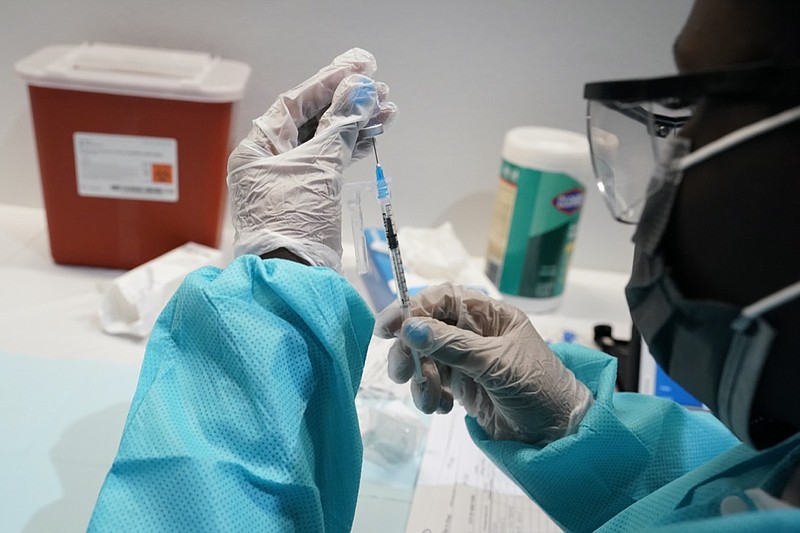Q: I'm not a big fan of shots. Is it inevitable that I'll need a booster dose of the COVID-19 vaccine?
A: The Department of Health and Human Services announced last week that a COVID-19 vaccine booster is recommended. This decision was made after review of data demonstrating that the vaccine's effectiveness against infection is reduced over time.
Data supporting a booster dose comes from several studies done in the United States and Israel. One study analyzed data on infection and hospitalization rates in a large hospital system over time. It found the vaccine protection against hospitalizations remained high, but vaccine effectiveness against infection was decreased. In a different study, researchers from the New York State Department of Health linked statewide immunization, laboratory testing and hospitalization data to estimate rates of new cases and hospitalizations over time. Protection against hospitalization remained stable, ranging from 92% to 95%, but vaccine protection against infection declined from 91% to 79%.
Similarly, a study of the U.S. Centers for Medicaid and Medicare looking at weekly data reported by CMS-skilled nursing facilities to the U.S. Centers for Disease Control and Prevention's National Healthcare Safety Network showed that the vaccine effectiveness in this at-risk population decreased over time and was significantly lower after the delta variant become the predominant circulating strain. Lastly, data from an Israeli study, which looked at time from vaccine to infection, found that risk for infection was significantly higher for those vaccinated early compared to those vaccinated later. That study suggests protection decreases over time. Data from the same group looking at effectiveness of a booster dose in people 60 and older showed that the booster dose reduced the risk of infection by 86% and the risk of severe infection by 92%.
These studies show that the current vaccines remain highly effective against hospitalizations and death, but protection against infection appears to decrease over time. The decreasing protection against infection warrants a booster dose and supports the ongoing mitigation measures such as masking and physical distancing for vaccinated individuals.
Approval for the booster dose is still subject to the review process by the CDC, the Federal Drug Administration and the Advisory Committee on Immunization Practices. Once it's approved, adults who received a two-dose vaccine series will be eligible for a booster dose eight months after the date of their second dose.
Fernando Urrego, M.D., is the interim health officer at the Chattanooga-Hamilton County Health Department and a member of the Chattanooga-Hamilton County Medical Society.

